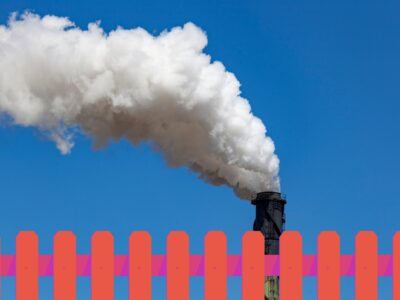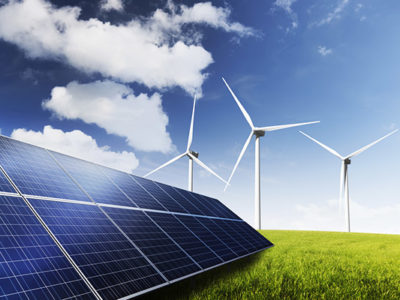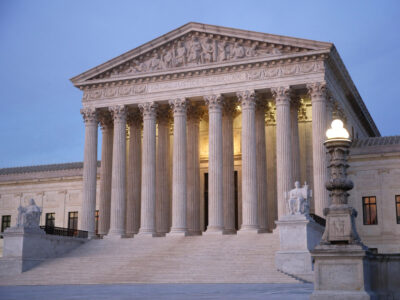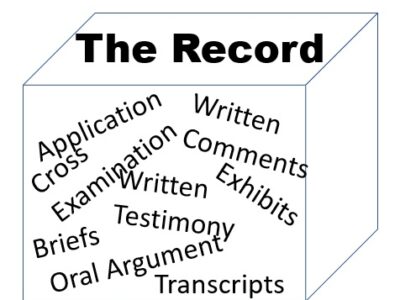35 Major Climate Initiatives Under Biden
By any measure, it has been an eventful four years for climate policy, with billions in spending and many major regulations finalized. Here's a timeline of the Top 30 actions.
In light of President Biden's withdrawal from the 2024 presidential race yesterday, we thought it was appropriate to update this piece about the climate legacy of the Biden-Harris Administration. In his four years in office, Donald Trump rolled back essentially every existing federal policy to limit climate change. The picture under the Biden Administration has been a dramatic reversal, enacting lots of environmental protections and starting to spend tens of billi...
CONTINUE READINGHere We Go Again! (Maybe)
The possibility of a second Trump presidency looms ahead. Time for some contingency planning!
The 2024 election won’t be decided until Election Day. At this point, what we can say is that the prospect of a second Trump term is real. Unlike 2016, when the outcome was a complete surprise to many people, we’re in a position to think ahead about possible policy shifts and possible responses. As the Project 2025 report shows, people on the other side are doing their own contingency planning, and so should climate advocates. Everything so far in the campaign i...
CONTINUE READINGIs 2025 the Year of the Carbon Tax?
Carbon border adjustment mechanisms are increasingly the talk of Washington. UCLA Law’s Kimberly Clausing explains some of the options on the table.
There’s a big, important tax debate looming next year—one with opportunities and risks for climate policy, particularly the idea of a carbon tax. It can be hard to see this debate thanks to the daily churn of the 2024 presidential election, but it’s there on the horizon if you squint. For one thing, we’ll likely close out this year as the new “hottest year on record” just before the next President of the United States takes office. Then by the end of 2025...
CONTINUE READINGRenewable Energy: A Timeline
Today’s wind and solar resources didn’t come out of nowhere.
The first efforts to use of wind to generate electricity was 134 years ago, and the photoelectric effect was discovered six decades earlier. So in a sense, these are old technologies — about the same age as the very first internal combustion engines. But the scientific and technological advances that made these technologies competitive with fossil fuels are much more recent. One thing you’ll notice is the importance of government-funded research and deployment ince...
CONTINUE READINGUnderstanding Loper: A Sheep in Wolves’ Clothing?
The real world effects may be limited. Or they may undercut presidential power, to the surprise of advocates of the unitary executive.
This post is the last in a weeklong series on the Supreme Court's ruling in the Loper Bright case. The ruling caused much rejoicing among conservatives who foretold the death of the administrative state. Among liberals, there was much rending of garments and gnashing of teeth. No one focused on the nuanced doctrine that the Court created to replace Chevron. In this week's blog posts, I have argued that the legal effect of the decision is likely to be incremental rath...
CONTINUE READINGUnderstanding Loper: The Grandfather Clause
Hundreds of past federal cases relied on Chevron. They remain good law.
To cushion the shock of abandoning Chevron, the Supreme Court created a safe harbor for past judicial decisions. This was well-advised. The Court itself applied Chevron at least seventy times, as did thousands of lower court decisions. The key question will be the scope of the grandfather clause. The Court’s discussion began by saying that “we do not call into question prior cases that relied on the Chevron framework.” Thus, “the holdings of those cases that...
CONTINUE READINGUnderstanding Loper: The Primacy of Skidmore
A previously obscure 1944 case will now be central to judicial review.
One thing about the Loper Bright decision is obvious: it overruled Chevron. So much for past law. What about the future? How should courts review agency regulations now that Chevron is gone? As I discuss in a later post, regulations that were upheld by the courts during the Chevron era have some protection, but new regulations will be fully subject to Loper rather than Chevron. The general refrain in the Loper opinion is “Skidmore deference." What does that mea...
CONTINUE READING$10 Billion Climate Bond Heads to the California Ballot
Prop 4 would authorize the issuance of bonds in the amount of $10 billion toward safe drinking water and groundwater, wildfire and forest programs, and to combat sea level rise.
After much anticipation and deliberation, the California legislature approved a $10 billion climate bond measure just before the summer recess began on July 3, 2024. California voters will now have the opportunity to approve or reject the bond measure on the November ballot. The bond measure will now be referred to as Proposition 4 on the upcoming ballot, but it began as SB 867, the Safe Drinking Water, Wildfire Prevention, Drought Preparedness, and Clean Air Bond Act...
CONTINUE READINGUnderstanding Loper: Delegation & Discretion
Something similar to Chevron deference may still apply to many (most?) regulations.
One thing about the Loper Bright decision is obvious: it overruled Chevron. So much for past law. What about the future.? How should courts review agency regulations now that Chevron is gone? As I discuss in a later post, regulations that were upheld by the courts during the Chevron era have some protection, but new regulations will be fully subject to Loper rather than Chevron. This post tackles a key paragraph in the Loper opinion where the Court discusses congr...
CONTINUE READINGPlaying fast and loose with reality
How the US Supreme Court's recent decisions enable greater reliance on "alternative" facts
As the U.S. Supreme Court has moved into an era of second-guessing federal administrative agencies to an extent that we have not seen in 80 years, it has delivered yet another blow to reliance on accurate facts. When I served as an administrative law judge for California’s state utility regulators, my job in each proceeding was to develop a clear and complete factual record to guide the agency’s ultimate decision. My recommended outcome had to be based entirely on...
CONTINUE READING












